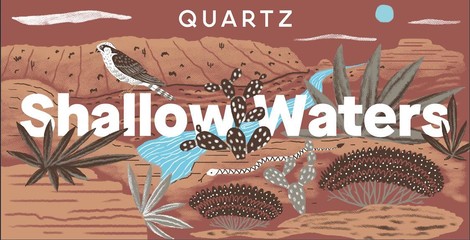Your podcast discovery platform
Curious minds select the most fascinating podcasts from around the world. Discover hand-piqd audio recommendations on your favorite topics.

piqer for: Globalization and politics Global finds
Luis BARRUETO is a journalist from Guatemala. Studied business and finance journalism at Aarhus University in Denmark and City University London.
The Texas-Mexico Border Is Running Out Of Water: Cross-Border Policy Needed
As climate change continues to drive water scarcity, our survival will depend increasingly on our ability to cooperate across borders. Shallow Waters is a series by Quartz and the Texas Observer that investigates the Texas-Mexico border, one of the fastest-growing regions in North America. While it may be the focus of much discussion around the infrastructure plans to bolster the US-Mexico border, water may be a much more complex issue to manage than with the simple building of a wall.
Building the proverbial wall would indeed exacerbate deadly flooding conditions and violate a long-standing treaty in the latest installment of “Shallow Waters.” It could also decimate these rare species inhabiting the border area.
Along the 1,250 miles of border, indeed, underground aquifers crisscross national boundaries. And they are of increasing importance as most sources of water have dried up in the Rio Grande area, due to climate change and a booming population, as Zoë Schlanger explains.
As water is essential not only to human consumption but to large scale industry, scarcity begs questions no government is prepared to answer: Who is to blame for depleting aquifers? How to address the issue? The answer necessarily involves trans-border cooperation mechanisms.
Failing to recognize this is brewing a potential crisis. Yet the region’s planners and elected officials don’t seem to have taken note.
As pointed out by Naveena Sadasivam, they're baffled over the veracity of climate change and its impact on their responsibilities, even as experts are discussing whether this can be the next megadrought – the last one began around 1140 AD and lasted decades.
Technology, meanwhile, is trying to rise to the challenge. Schlanger offers details on brackish desalination, rainwater catchment and other technologies which could ensure a more efficient use of water resources. Suffice it to say it is not pretty – some of the scenarios involve drinking our own urine.
